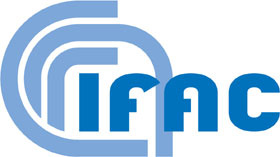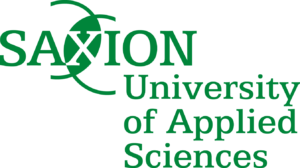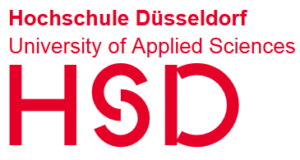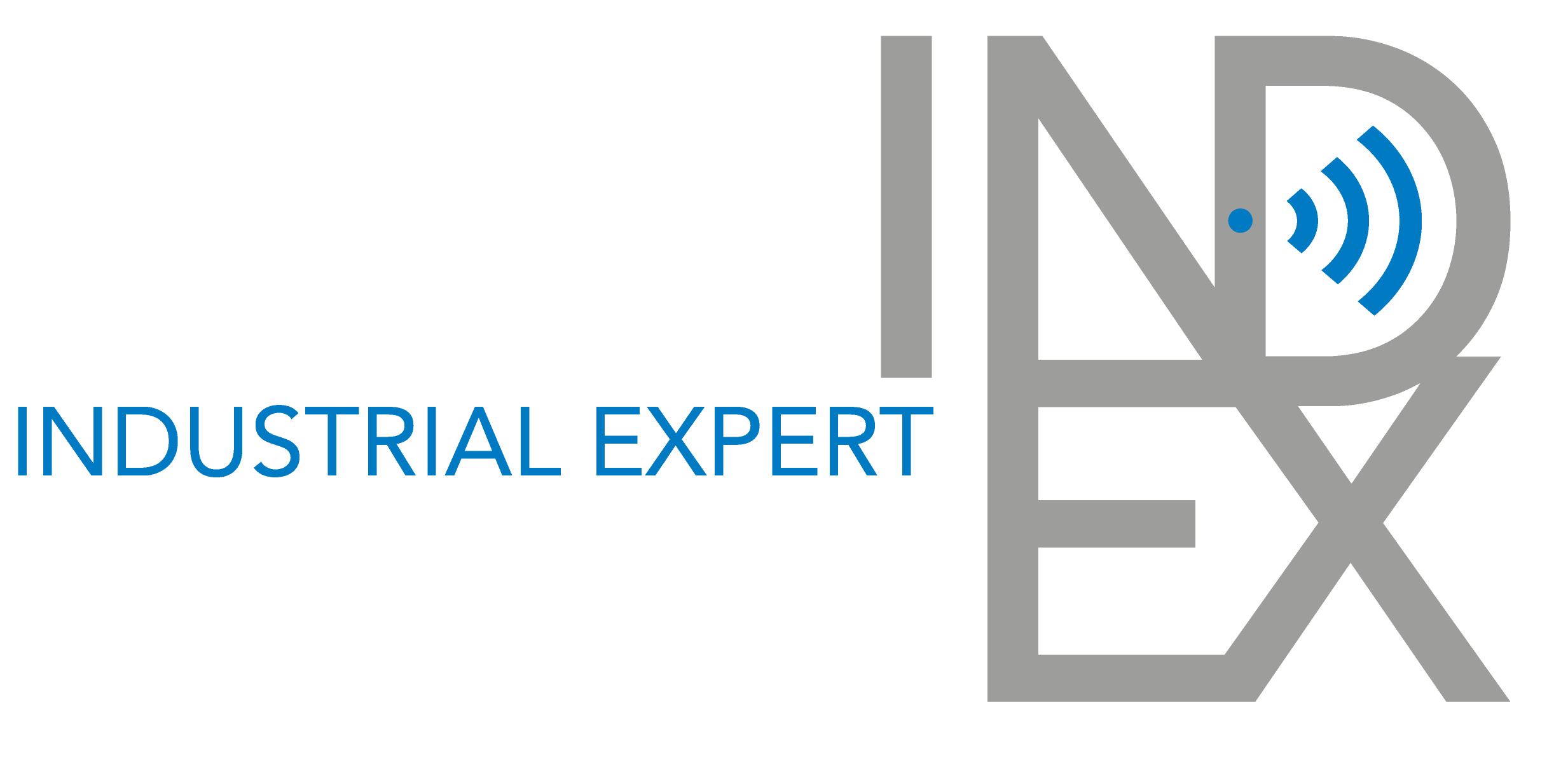Become an Industry 4.0 expert!
INDEX – Industrial Expert
Project information
The onset of the fourth industrial revolution known as “Industry 4.0” is a key technological feature at the current stage of human development. The working group on Industry 4.0 characterized its vision of the new industrial revolution as a worldwide implementation of information and communication technologies (ICT) in manufacturing processes, which are not only in charge for certain manufacturing stages, but are able to monitor and optimize manufacturing processes completely on independently. The greatest challenge of the Industry 4.0 however isn’t technology – it is the skills and digital qualifications of the people who need to roll out digital processes and services. For almost every business and, of course, all engineering or manufacturing companies, enhancing skills and organisational structures will be critical.
All latest studies show, that such a rapid pace of technological development makes it almost impossible for existing vocational education and training to provide adequate and timely solutions. An essential prerequisite for the implementation of the ‘’Industry 4.0“ as a whole, and specifically for additive manufacturing technologies, is a training of professionals competent in effectively using the huge opportunities of innovative solutions offered by the fourth industrial revolution.
The term was coined in 2011 when the German government defined I 4.0 as an integral element of the German “High-tech Strategy 2020”, communicating the vision of the new industrial revolution as a worldwide implementation of cyber physical systems in manufacturing processes, which are not only in charge for certain manufacturing stages, but are also able to monitor and optimize manufacturing processes.
The linking and development of ICT, reliable communication networks, Internet technologies, Big Data and OAIS (Open Archival Information Systems) are critical, as well as global production networks. The innovation’s efficiency is in particular due to the global link.
The observations made by the consortium partners coincide with a large number of studies and analyses in the area of I 4.0, e.g. conclusions of the joint analysis of VDI and ASME on needs of German Industry, analysis made by GATS and the Frauenhofer SCL Institute, statements of leading consulting companies and industrial companies themselves.
These show, that the rapid pace of technological development makes it almost impossible for existing vocational education and training to provide adequate and timely solutions.
The training of specialists is necessary for the implementation of corresponding technologies and the use of market options in practice. Irrespective of numerous technical innovations, learning in the field of VET often continues to take place in the classical analog way. One of the goals is therefore to make digital resources accessible to teachers and students as an elementary opportunity for the future, to impart skills and application-oriented learning and teaching. Furthermore, we will provide general guidance in the targeted use of digital media in modern VET learning.
Try the INDEX openedX course!
Target Groups
Relevant Groups
I 4.0 is relevant for a large number of potential users who can, therefore, benefit from the project:
- Companies, in particular SMEs, engaged in modern technology or related industries, and relevant key staff in those industries, e.g. project managers, business development managers, innovation managers. This also applies to professionals of companies and enterprises that are already using I 4.0 technologies and equipment for certain areas of application, but are interested in exploring the new areas of application.
- Professionals interested in opportunities to apply I 4.0 technologies in their area of expertise. The course will provide them with practical skills to make use of I 4.0 technologies in their areas of expertise and lead to a strategic labour market advantage and a competitive advantage for their company.
- Intermediaries and intermediary organisations, professionals (including managers) of business development departments, who are interested in opportunities and I 4.0 technologies relevant to their area.
- Tertiary/post-tertiary graduates- in the fields of mechatronics, design, medical technics, engineering, architecture, natural sciences, medicine, who are willing to enhance their knowledge and skills base before starting their career in industry.
- Trainers and lecturers who want to design and offer qualified advanced training courses on I 4.0 technologies for companies, professional associations and educational institutions.
- VET providers – training and apprenticeship centres, VET-colleges etc.
- Other stakeholders: regional development agencies, political decision makers, chambers of commerce and industry, industrial associations, foundations relating to I 4.0, capital investors, patent attorneys etc.
The INDEX Outputs – Free to use and open licensed
Output 1 - The INDEX Competence Profile
Competence Profile of the ‘Industrial Expert – INDEX’, structured according to ECVET guidelines.
The competence profile is based on a state of the art market, training and demand analysis in the field of nanotechnology as well as all relevant industries. In this way, it can be used as a point of reference for further training courses and form the basis for independent vocational training.
This work is licensed under a Creative Commons Attribution 4.0 International License.
Output 2 - Didactical concept and methodology for validation and assessment
IO2 is completely redeveloped to provides a scientifically sound basis for the teaching and training of technically complex contents, both in MOOCs and blended learning scenarios. The concepts developed here are based on vocational education approaches. Of particular importance is adaptability at various levels and the ability to address learners with different prequalifications (P2). It is relevant for teaching and VET content specialists.
The outputs created here will help teachers to:
– design training courses in such a way that they meet the needs of an adult target group;
– address a heterogenous group with different prequalifications;
– integrate MOOCs/e-learning platforms etc. into teaching concepts;
– determine relevant tools applied to combine online and classical teaching;
– to impart academic content in such a way that it can be understood without prior academic qualifications.
This work is licensed under a Creative Commons Attribution 4.0 International License.
Output 3 - I 4.0 Introduction course
As described under IO2, all Educational Resources follow an equal structure. IO3 is a partial exception, since IO3 is the only module that deals with theoretical principles alone.
The IO3 Introductory course on Industry 4.0 is organized in modules and enables the users of the “MOOC” to acquire basic knowledge on IO 4.0. Suggested content of the introductory course modules:
A short introduction to the IO 4.0 approach, key concepts and terms, design principles, structure of its functional components etc.; current and prospective application areas of the IO 4.0 components; analysis of advantages and disadvantages of the IO 4.0 components, their limitations, opportunities and applicability; The EC-IO4 is based on the university course, adapted in accordance with the target groups and digital environment.
This work is licensed under a Creative Commons Attribution 4.0 International License.
Output 4 - I 4.0 - Entrepreneurship, Technology and Restructuring Management
As described under IO2, all Educational Resources follow an equal structure.
IO4 Entrepreneurship, Technology and Restructuring Management (E-TRIM) is organized in modules and enables the users of the “MOOC” to acquire intensive knowledge on the use, application and commercialisation of Industry 4.0 technologies in the context of businesses and companies. Suggested content of the E-TRIM IO:
IO4 is focussed on technical professionals and on startup founders to inform them on theory, practical methods and tools in innovation management and in marketing project results.
This work is licensed under a Creative Commons Attribution 4.0 International License.
Output 5 - I 4.0 - Sensors and Automation
As described under IO2, all Educational Resources follow an equal structure.
IO5 Sensors and Automation is organized in modules and enables the users of the “MOOC” to acquire intensive knowledge on the use, application and commercialisation of sensors and automatisation technologies as part of Industry 4.0.
This work is licensed under a Creative Commons Attribution 4.0 International License.
Output 6 - I 4.0 - Additive Manufacturing
As described under IO2, all Educational Resources follow an equal structure.
IO6 Additive Manufacturing is organized in modules and enables the users of the “MOOC” to acquire intensive knowledge on the use, application and commercialisation of additive manufacturing technologies as part of Industry 4.0. Suggested content of the Additive Manufacturing IO:
Additive Manufacturing
The curriculum is to be developed in a very practice-oriented way, whereby a complete overview of the methods and possibilities of additive manufacturing is given, so that the course participant can choose the easiest and most economical way to manufacture the product. The first part should be short and informative in a systematic but not abstract way. Because of the fast development of methods and changes in investment costs, the content should be easy to update.
This work is licensed under a Creative Commons Attribution 4.0 International License.
Output 7 - I 4.0 - Internet of things
As described under IO2, all Educational Resources follow an equal structure.
IO7 Internet of Things (IoT) is organized in modules and enables the users of the “MOOC” to acquire intensive knowledge on the use, application and commercialisation of concepts pertaining to the broad context of IoT. The phrase Internet of Things was coined by Kevin Ashton of Procter & Gamble in 1999 to denote composite networks of devices embedded with electronics, software, sensors, actuators and connectivity enabling inter-connection and the exchange of data. In 2016, the number of devices with online capability increased by more than 30% and reached 8.4 billion in 2017 and is anticipated to exceed 30 billion by 2020 with a value of $7.1 trillion, thus representing a cornerstone of Industry 4.0.
This work is licensed under a Creative Commons Attribution 4.0 International License.
Output 8 - I 4.0 - Augmented Reality
As described under IO2, all Educational Resources follow an equal structure.
IO7 Augmented Reality (AR) is organized in modules and enables the users of the “MOOC” to acquire intensive knowledge on the use, application and commercialisation of concepts pertaining to the broad context of AR.
This work is licensed under a Creative Commons Attribution 4.0 International License.
Output 9 - I 4.0 - Open Educational Platform / MOOC
The courses are offered as OER via a MOOC platform, which is modularly structured and offers content tailored to the individual target groups in the modern fields of high-tech employment.
The use of ‘ready to use’ existing MOOC platforms and of third-party hosting solutions would be accompanied by considerable costs in the long term. For this reason, to save costs in the long term, we will build up our own platform and IT infrastructure within the scope of the project, using an open source MOOC environment.
The INDEX MOOC platform will be designed to:
– enable the trainers to upload their own material
– enable online interaction of the users with the educational content
– enable consultation
– enable assessment.
Together with the INDEX MOOC platform, tailored instructions for platform usability will be provided. We will take care that the INDEX MOOC platform will be as user-friendly as possible.
The INDEX MOOC platform will be designed for the highest versatility and adaptability for further extensions and exploitation.
This work is licensed under a Creative Commons Attribution 4.0 International License.
The INDEX – Consortium Partners
(1) INTAMT - International Academy of Management and Technology
The International Academy of Management and Technology (INTAMT) e. V. was founded in 2005 with the aim of promoting knowledge transfer between the CIS states and the EU. The association relies on the well-founded CIS expertise and the many years of European experience of its employees and members. INTAMT works closely with a network of federal, regional and local administrative and governmental bodies, universities, leading research institutions, innovation and technology centres as well as companies and associations in the CIS and EU states to achieve its goals.
Since 2005 INTAMT has implemented more than 600 projects worldwide, one of its main areas of activity is the further training of specialists from the former USSR as well as advising administrative and government bodies and educational institutions. INTAMT acts both as an implementation and strategy development partner for actors in vocational education and training and adult education. In numerous projects, INTAMT has organised, implemented and supervised the study trips and further training courses for foreign (among others Russian) vocational education and training experts, NGOs, trainers, teachers etc. in Germany and abroad and has developed corresponding methodological and didactic concepts.
(2) ASEV - Empolese Valdelsa Spa Development Agency
ASEV was created in 2002 with both public and private capital by the municipalities and social partners of the Empolese Valdelsa district, to promote the economic, cultural and social development of the area. ASEV is officially recognised as an adult and vocational training and career guidance centre. Its activities, which so far have involved 7000 people, also include planning and managing courses and activities related to university education; services to promote employment in cooperation with local PES; cooperation with local schools in education activities and teachers’ training. ASEV manages an ODL centre and an intercultural centre that organizes courses in Italian as a second language, training of teachers in intercultural issues, welcoming projects for migrants, field research on immigration and mediation of intercultural conflicts.
(3) IFAC - National Research Council
 The “Nello Carrara” Institute of Applied Physics (IFAC) is part of the National Research Council (CNR), which is the main public organisation pursuing research and innovation in Italy. IFAC consists of 57 researchers and technologists, 25 technicians and administrators and 55 collaborators. Its main aim is to carry out frontier research at an international level and, at the same time, to develop new technologies and methodologies that could be effectively transferred to the economic system. The approaches involved are theoretical, experimental and applied research, with a firm determination to develop new techniques and to build prototypes of instruments. The main research lines are around the inner core of physical methods of scientific investigations and pertain to the general fields of optoelectronics, spectroscopy, and ICT. The main lines of research are Lasers, Bio-photonics, Micro-optics, Sensors, Remote Sensing, Microwaves, and ICT.
The “Nello Carrara” Institute of Applied Physics (IFAC) is part of the National Research Council (CNR), which is the main public organisation pursuing research and innovation in Italy. IFAC consists of 57 researchers and technologists, 25 technicians and administrators and 55 collaborators. Its main aim is to carry out frontier research at an international level and, at the same time, to develop new technologies and methodologies that could be effectively transferred to the economic system. The approaches involved are theoretical, experimental and applied research, with a firm determination to develop new techniques and to build prototypes of instruments. The main research lines are around the inner core of physical methods of scientific investigations and pertain to the general fields of optoelectronics, spectroscopy, and ICT. The main lines of research are Lasers, Bio-photonics, Micro-optics, Sensors, Remote Sensing, Microwaves, and ICT.
(4) UoL - University of Lodz, Faculty of Management

The University of Lodz is one of the leading institutions of higher education in Poland. The Faculty of Management was established in 1994 and provides world-class education to nearly 5,000 students and the academic staff of the Faculty, numbering almost 200 academics, carrying out research in management-related sciences in cooperation with international partners, according to best regional and international practice. In addition, the Faculty of Management is the leading scientific and didactic centre in the region of Lodz, specialising in management-related sciences. The Faculty has well established cooperation covering entrepreneurial activities with business environment institutions. The project team members are experts in technology transfer and processes related to the commercialization of science.
(5) PBU - University Politehnica of Bucharest
University Politehnica of Bucharest is the largest Technical University in Romania greatly contributing to the development of Higher Education. It has a vast range of expertise in CAD/CAM technologies for innovation and creativity in Technical Engineering, with these disciplines being taught to students for several years. The academic and technical staffs of one of its centres – CAMIS – has experience in ICT technologies concepts and nano-technologies within the Faculty of Engineering and Management of Technological Systems (EMTS). The EMTS faculty has a undergraduate and a Masters programme entitled “Nanotechnologies and unconventional systems” that has been offered to students for 8 years now. The CAMIS centre has vast experience with EU projects.
(6) SAXION - University of Applied Science
 Saxion University of Applied Sciences is one of the largest institutions of higher education in the Netherlands, with over 24,000 students and 2,200 staff members. Saxion consists of four campuses in the Eastern part of the Netherlands – one campus in each of the four Dutch cities of Deventer, Enschede, Apeldoorn and Hengelo. Thanks to the important contribution of agriculture to the local economy, this region is renowned for its countryside and fairly relaxed pace of life. However, all four Saxion locations have good public transport facilities, meaning that the cities of Amsterdam, Rotterdam, Utrecht and The Hague are no more than 1½ hours away.
Saxion University of Applied Sciences is one of the largest institutions of higher education in the Netherlands, with over 24,000 students and 2,200 staff members. Saxion consists of four campuses in the Eastern part of the Netherlands – one campus in each of the four Dutch cities of Deventer, Enschede, Apeldoorn and Hengelo. Thanks to the important contribution of agriculture to the local economy, this region is renowned for its countryside and fairly relaxed pace of life. However, all four Saxion locations have good public transport facilities, meaning that the cities of Amsterdam, Rotterdam, Utrecht and The Hague are no more than 1½ hours away.
Saxion has built a strong position in Dutch higher education and has come to be recognized as an important centre of expertise at regional, national and international level. The University offers a broad range of courses at various levels, including many international educational programmes. The international student population tops 2,500 students with a total of 55 different nationalities. Many of Saxion’s full-time educational courses are already conducted in English, with more being added each year.
Saxion is divided into thirteen individual schools each with its own discipline, although not all schools offer international programmes. Until 2020 Saxion’s key area of focus is Living Technology. Research projects are also connected to this field of development. Saxion has six Research Centres each centre with its own area of expertise. Research results and new insights are not only beneficial to cooperating businesses and organisations but also in the educational programmes. Being in such close contact with the market ensures that the content of the programmes is always aligned with the latest developments within the professional sector concerned.
(7) HSD - Düsseldorf University of Applied Sciences
 Hochschule Düsseldorf, University of Applied Sciences (HSD for short) was founded on 1 August 1971 by combining several renowned regional educational institutions. Today, the institution is one of the largest universities of applied sciences in the German Federal State of North Rhine-Westphalia and offers a comprehensive and interdisciplinary range of subjects. Approximately 10.000 students are taught in 36 degree programmes in seven faculties by nearly 200 professors. The educational and research emphasis at HSD has a strong practical and interdisciplinary approach. The university guarantees that course contents are connected to practical work necessities since they are based on extensive professional experiences in commerce, industry and research of all our professors and lecturers. Thus, practical courses are indeed an integral component of the university’s study programmes. HSD offers teaching and research in the interdisciplinary areas of design, technology, the social sector and business studies. The emphasis is put on
Hochschule Düsseldorf, University of Applied Sciences (HSD for short) was founded on 1 August 1971 by combining several renowned regional educational institutions. Today, the institution is one of the largest universities of applied sciences in the German Federal State of North Rhine-Westphalia and offers a comprehensive and interdisciplinary range of subjects. Approximately 10.000 students are taught in 36 degree programmes in seven faculties by nearly 200 professors. The educational and research emphasis at HSD has a strong practical and interdisciplinary approach. The university guarantees that course contents are connected to practical work necessities since they are based on extensive professional experiences in commerce, industry and research of all our professors and lecturers. Thus, practical courses are indeed an integral component of the university’s study programmes. HSD offers teaching and research in the interdisciplinary areas of design, technology, the social sector and business studies. The emphasis is put on
architecture, design, electrical engineering, mechanical engineering and process engineering, media, social and cultural sciences and business studies. All degrees which can be obtained at HSD are Bachelor or Master degrees. The University has around 80
European and around 30 international university agreements and actively promotes the international exchange of students and lecturers by participating in congresses and summer schools.
Partner Map

Interested, Questions? Get in Touch!
Contact Information
Partner contacts in the consortium
If you have any questions about the project, especially if you have more regional concerns, you can also contact one of the project managers directly.
ASEV (Italy):
Giulia Rigoli
g.rigoli@asev.it
+39 (0) 571 76650
IFAC (Italy)
Fulvio Ratto
rattof@ifac.cnr.it
+39 (0) 55 5225307
University of Lodz (Poland)
Bartek Kalinowski
tbkalinowski@uni.lodz.pl
+48 (0) 42 635 62 81
Polytechnic University of Bucharest
Catalin Amza
acata1@camis.pub.ro
+4 (0) 21 402 954
SAXION – University of Applied Science
Martin Bennink
m.l.bennink@saxion.nl
+31 (0) 6 23 220 882
Hochschule Düsseldorf
Andreas Jahr
andreas.jahr@hs-duesseldorf.de
+49 (0) 211 43519730
The INDEX Project is led by the INTAMT Group, Düsseldorf.
Responsible project manager:
Name: Renata Musifullina
Tel: +49 211 55 044 533
Mail: musifullina(at)intamt.de
ERASMUS+

Funding number is: 2018-1-DE02-KA202-005228
This project has been funded with support from the European Commission. This website reflects the views only of the author, and the Commission cannot be held responsible for any use which may be made of the information contained therein.
Licence Information
All downloadable documents found on this webpage are licensed under a Creative Commons Attribution 4.0 International License.
All further information about the project partners and the project may be used with reference to the project (a link is required). Any other use is expressly prohibited. If you have any uncertainties, please contact the project manager.

 Co-funded by the Erasmus+ programme of the European Union.
Co-funded by the Erasmus+ programme of the European Union.


